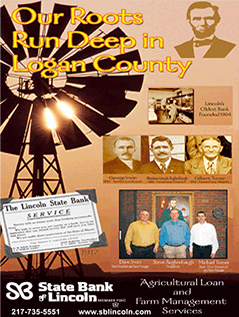|
 The powers want Iran to scale back its uranium enrichment activity
to deny it any capability to quickly produce an atomic bomb, if it
decided on such a course. Iran says its nuclear programme is
entirely peaceful and wants them to lift sanctions. The powers want Iran to scale back its uranium enrichment activity
to deny it any capability to quickly produce an atomic bomb, if it
decided on such a course. Iran says its nuclear programme is
entirely peaceful and wants them to lift sanctions.
Chief negotiators from Iran, the United States, France, Germany,
Britain, China and Russia started a two-day meeting around 9:45 a.m.
at the U.N. complex in Vienna, where they have held two previous
such sessions since February.
"We are involved in very detailed and substantial negotiations and
we are trying as hard as we can to drive the process forward," the
spokesman for European Union foreign policy chief Catherine Ashton,
who coordinates the discussions on behalf of the powers, told
reporters.
Both sides say they want to start drafting a comprehensive agreement
in May, some two months before a July 20 deadline for finalising the
accord. Western official say, however, that the parties are still
far apart on key issues.

"What matters most to us is that there is a good agreement. Clearly
we want to make progress as fast as possible but the most important
thing is the quality of the agreement," Ashton's spokesman, Michael
Mann, said.
"It has to be a good agreement that everyone is happy with. So we
will work as hard was we can to achieve that."
Iranian and U.S. negotiators are wary that any deal will face
criticism from conservative hardliners at home wedded to
confrontation since Iran's 1979 Islamic Revolution.
The six nations have agreed internally to have a draft text of an
accord by the end of May or early June, one diplomat from the powers
said, adding however: "We're still in an exploratory phase ... In
the end, things will happen in July."
Tuesday's opening session was chaired by Ashton and Iranian Foreign
Minister Mohammad Javad Zarif, but their deputies later took over.
ENRICHMENT, ARAK
The Islamic Republic says its enrichment programme is a peaceful bid
to generate electricity and has ruled out shutting any of its
nuclear facilities.
The United States and some other Western countries have accused it
of working on developing a nuclear bomb capability. Israel has
threatened to attack its long-time foe Iran if diplomatic efforts
fail. Iran says it is Israel's assumed atomic arsenal that threatens
peace and stability in the Middle East.
[to top of second column] |

The diplomat said issues to be discussed at the April 8-9 meeting
included how the United Nations nuclear watchdog would verify
whether Iran was meeting its end of any deal, suspected past atomic
bomb research by Tehran, and how to deal with U.N. Security Council
resolutions on Iran adopted since 2006.
A senior Iranian negotiator, Deputy Foreign Minister Abbas Araqchi,
said major issues discussed in previous meetings — Iran's level of
uranium enrichment and a heavy-water nuclear reactor project at Arak — would also be debated.
Refined uranium can be used to fuel nuclear power plants, Iran's
stated purpose, but can also provide material for a bomb, which the
West suspects may be Tehran's ultimate aim. The Arak reactor, once
operational, can yield plutonium — another weapons-usable fissile
material — but Iran says it only intends to use it for medical and
agricultural research ends.
The goal of the negotiations begun almost two months ago is to
hammer out a long-term deal to define the permissible scope of
Iran's nuclear programme in return for an end to sanctions that have
hobbled the OPEC country's economy.
In November, the two sides agreed an interim accord curbing some
Iranian enrichment activities in exchange for some easing of
sanctions. This six-month deal, which took effect on January 20, was
designed to buy time for talks on a final accord.
The talks can be extended by another half-year if both sides agree
to do so, and negotiate the content of an extension deal.

(Additional reporting by Fredrik Dahl and Louis Charbonneau;
editing
by Mark Heinrich)
[© 2014 Thomson Reuters. All rights
reserved.] Copyright 2014 Reuters. All rights reserved. This material may not be published,
broadcast, rewritten or redistributed. |